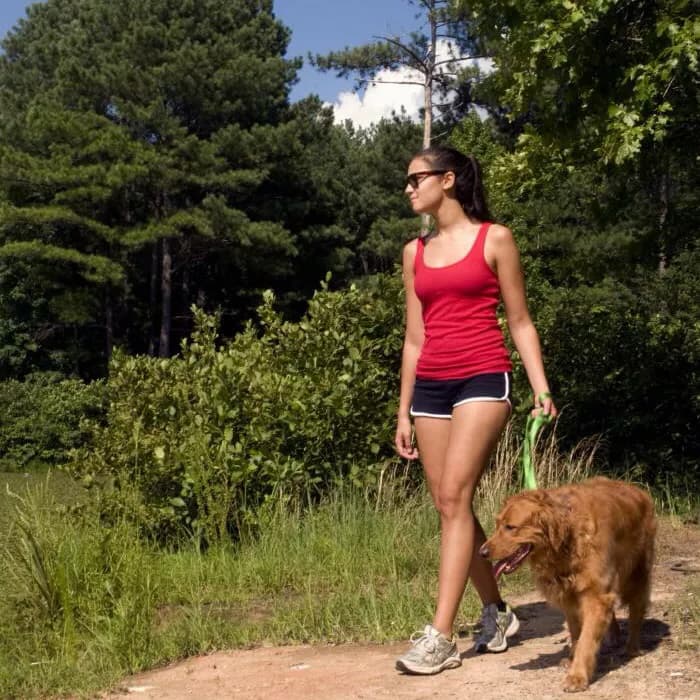
Is Your Dog's Aggression And Behavior Affecting Your Health?
We all love our dogs. Did you know that your dogs behavioral issue can add a significant stress to your life. It's proven that stress increases blood pressure, makes diabetes worse, decreases your immune system making you prone to infections, causes weight gain, lowers work performance and affects relationships. Affect of stress due to behavioral issues in your pets is often under recognized and frequently downplayed.
The needs of a pet dog are simple - ample exercise, balanced food, clean water, grooming, socialization, and medical care when needed. Fundamentally, aggression or behavioral problems are seen when there is an imbalance of these needs. Unless there is a medical reason, dogs do not become aggressive suddenly. They practice their aggressive behavior with growing intensity and degree. Unfortunately, owners are unable to gauge or choose to ignore the early signs of aggressive behavior in their dog. Eventually, there is a point when the dog's behavior gets stressful for the family.
One of the common reasons why an owner does not seek help with regard to an older dog is because of a misnomer that an adult dog cannot be trained. Yes! Older dogs can be trained but it takes time and patience. Long practiced aggressive behavior cannot be eliminated completely from the dog’s behavior. But it can be managed and controlled. In the given prognosis, it is important to observe, correct or even better prevent factors that contribute to behavioral issues in a dog.
Following are some steps that help you deal with your dog's behavioral issues which in turn will help you live a healthier and wholesome life!!
Snap when in pain:
If a docile dog suddenly beings to bite, growl or snap, a visit to the vet is important. Instinctively, it is a dog's way to dealing with pain; protecting themselves from further pain.
Use of cruel training methods that use punishment and intimidation or choke chains can be easily avoided as they are one of the primary factors why dogs become aggressive as adults.
Control of resources:
A dog who snaps and refuses to let go of his toys or guards is sleeping mattress or barks from windows or lunges at fences or guards his food or humps or barks back at the owner - means that there is a dominance issue. When a dog pees or poo’s on the bed, or runs away with things in the house, often it is to draw the owners attention. Practicing interactive games that reinforce basic obedience can help.
A tired dog is a happy dog:
In few cases, one of the easiest ways to ensure that a dog does not practice his aggressive behavior is to keep him tired. An extra long walk, or play of fetch at home and a change in diet can help improving the dogs confidence or rebuilding the bond between the dog and the owner. Watch out for any obsessive behavior like licking one spot incessantly, scrapping out wall paint, eating ones own poo. These are signs that dog is bored and verging on to being nervous.
Body language:
Dogs give out many signs when under stress. Yawning, licking of ones nose, sniffing the ground or turning one's head away are all tell-tale signs that a dog is not comfortable in the situation he or she is. Help the dog by distressing him. Often, owners punish their dogs for growling. This is wrong. A growl is a dog's way to warn us that he ha about to snap. He is choosing not to bite. Punishing or intimidating the dog when growling can encourage him to display full blown aggression.
Aggression genetically encoded:
Senseless, uneducated breeding wherein either the male or the female dog has aggression issues leads to puppies carrying the traits forward. In such cases, the puppies need to be trained with care avoiding situations which encourage them to practice aggressive behavior. Hence, it is very important to choose the breed and pup carefully. To have a pup with the right genes and temperament is half work done in training him or her.
Dog Vs people and other dogs:
When not socialized well as a pup, a dog grows up to seeing people, other dogs and outdoors as a threat. Biting guests, refusing to come for walks, salivating and shivering when taken out are stressful on the dog as well as the owner who has to deal with such behavior. Often a nervous dog becomes growingly confident in displaying aggressive behavior. Remember, dogs are basically ‘flight’ animals and will attack only when not given an option to move away. It is best that a trained canine counselor steps in helping such a dog rather than watching TV shows and trying ‘instant’ tactics on the dog.
Why!
Displaying aggressive behavior is very tiring for the dog too. It is important to understand your dog and the root cause of the problem. One of the fundamental ways to tackling canine issues is to eliminate the situation which makes the dog practice his or her negative behavior. It is best that the owner takes help of a canine counselor while dealing with a dog with problems as there has to be an educated way to go about retraining the dog. After all, if things get worse, the dog might lose a home and the owner might lose a dog who given a chance, might be a loving companion.
Related Articles
Test Your Knowledge
Asked by users
Related Centers
Related Specialties
Related Physicians
Related Procedures
Related Resources
Join DoveHubs
and connect with fellow professionals

0 Comments
Please log in to post a comment.